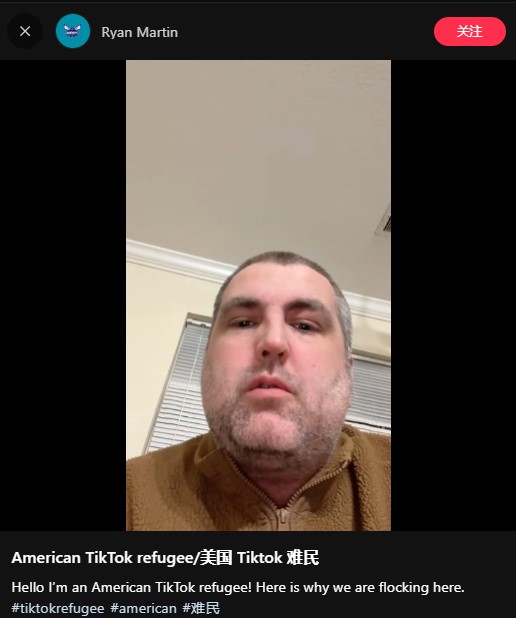UNITED STATES: With TikTok’s fate hanging in the balance, American content creators are seeking refuge on another Chinese social media platform, Xiaohongshu, as the U.S. Supreme Court deliberates a potential ban on the popular app.
TikTok’s legal challenge against the U.S. government came to a head last Friday (10 January) when the Supreme Court heard arguments on whether the app could be banned over national security concerns.
ByteDance, TikTok’s Chinese parent company, has been ordered to either divest from the platform or risk a shutdown by 19 January, just before President-elect Donald Trump is sworn into office the next day.
While TikTok will not disappear immediately for existing users, it could be removed from U.S. app stores, halting downloads for new users.
This has sparked panic among content creators, many of whom have turned to Xiaohongshu—literally “Little Red Book” in Mandarin—as a potential alternative.
Some aim to restore their TikTok communities, while others view their move as a protest against the U.S. banTikTok ban
Xiaohongshu (XHS), a Shanghai-based platform often described as “the Chinese version of Instagram,” has surged in popularity among U.S. users.
By Monday, it was the most downloaded app on Apple’s U.S. App Store, despite lacking an official English interface.
The app, traditionally focused on travel and lifestyle content, boasts over 300 million users globally.
Newcomers, who refer to the platform as “Red Note,” are navigating its predominantly Chinese ecosystem using translation tools.
Some hope to rebuild the communities they had on TikTok, while others see their migration as a form of protest against the U.S. government’s decision to ban TikTok.
“I would rather stare at a language which I can’t understand than to ever use a social media [platform] that Mark Zuckerberg owns,” remarked one user in a video posted on Xiaohongshu.

Another TikTok user, Ryan Martin, introduced himself to the platform with a translated statement: “The American government is banning TikTok, so we are looking for an alternative. ”
“We are very sorry to interrupt you here. Hope we don’t have to stay here for too long.”

His video, featuring a robot-generated Chinese voiceover, was met with understanding responses from Chinese users, one of whom commented, “It’s fine, you are not interrupting. When you guys are active, we are sleeping.”

For many U.S.-based creators, the potential TikTok ban represents more than just a loss of a platform—it threatens their livelihoods.
Over the years, numerous creators have built careers on the app, leveraging its reach to grow large followings and secure brand deals.
“Our government, I’m convinced, loves and thrives seeing us unhappy, struggling, and poor,” lamented a TikTok user.
“Seeing that RedNote, another Chinese app, is now the No. 1 app in the App Store today is just beautiful.”
@adivunsolicited rednote, another wholely owned Chinese app is the #1 app on US app stores today, I’m sure Congress wasn’t prepared for this to happen #rednote #tiktokban #fypシ゚viral
President Trump seeks to delay the ban
TikTok’s parent company, ByteDance, has argued that the U.S. government’s push to enforce the ban violates the First Amendment, which protects against government restrictions on free speech.
However, the Biden administration had cited national security concerns, alleging that the Chinese government could exploit the platform to surveil Americans.
President Trump has called for a delay in the ban’s implementation, hoping to explore a political resolution once his administration takes office.
If the ban proceeds, Apple and Google will no longer be allowed to offer TikTok for download in the U.S., though existing users will still have access temporarily.
Over time, however, the app’s functionality is expected to degrade due to a lack of support services.


